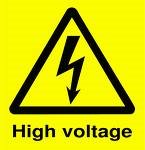- Analog and Digital Conversion
- Basic Electrical Generation and Distribution
- Biography of Nikola Tesla
- Circuit Idea
- Circuit Theory
- Communication Systems
- Digital Circuits
- Digital Signal Processing
- Electric Circuits
- Electrodynamics
- Embedded Systems
- Microprocessor Design
- Power Systems Analysis, Design, and Control
- Signals and Systems
Sunday, July 1, 2007
Electrical Engineering Books
Useful Experience/Skills that Electrical Engineering should have
- Project management
- Team project work
- Proposal writing
- Making presentations
- Financial management
- Committee work on industry ethics
Subscribe to:
Posts (Atom)
Electrical Engineering
Electrical Engineering (sometimes referred to as electrical and electronic engineering) is a semi-professional and professional engineering discipline that deals with the study and/or application of electricity, electronics and electromagnetism. The field first became an identifiable occupation in the late nineteenth century after commercialization of the electric telegraph and electrical power supply. The field now covers a range of sub-studies including those that deal with power, electronics, control systems, signal processing and telecommunications.
The term electrical engineering may or may not encompass electronic engineering. Where a distinction is made, electrical engineering is considered to deal with the problems associated with large-scale electrical systems such as power transmission and motor control, whereas electronic engineering deals with the study of small-scale electronic systems including computers and integrated circuits.[1] Another way of looking at the distinction is that electrical engineers are usually concerned with using electricity to transmit energy, while electronics engineers are concerned with using electricity to transmit information.
The term electrical engineering may or may not encompass electronic engineering. Where a distinction is made, electrical engineering is considered to deal with the problems associated with large-scale electrical systems such as power transmission and motor control, whereas electronic engineering deals with the study of small-scale electronic systems including computers and integrated circuits.[1] Another way of looking at the distinction is that electrical engineers are usually concerned with using electricity to transmit energy, while electronics engineers are concerned with using electricity to transmit information.
